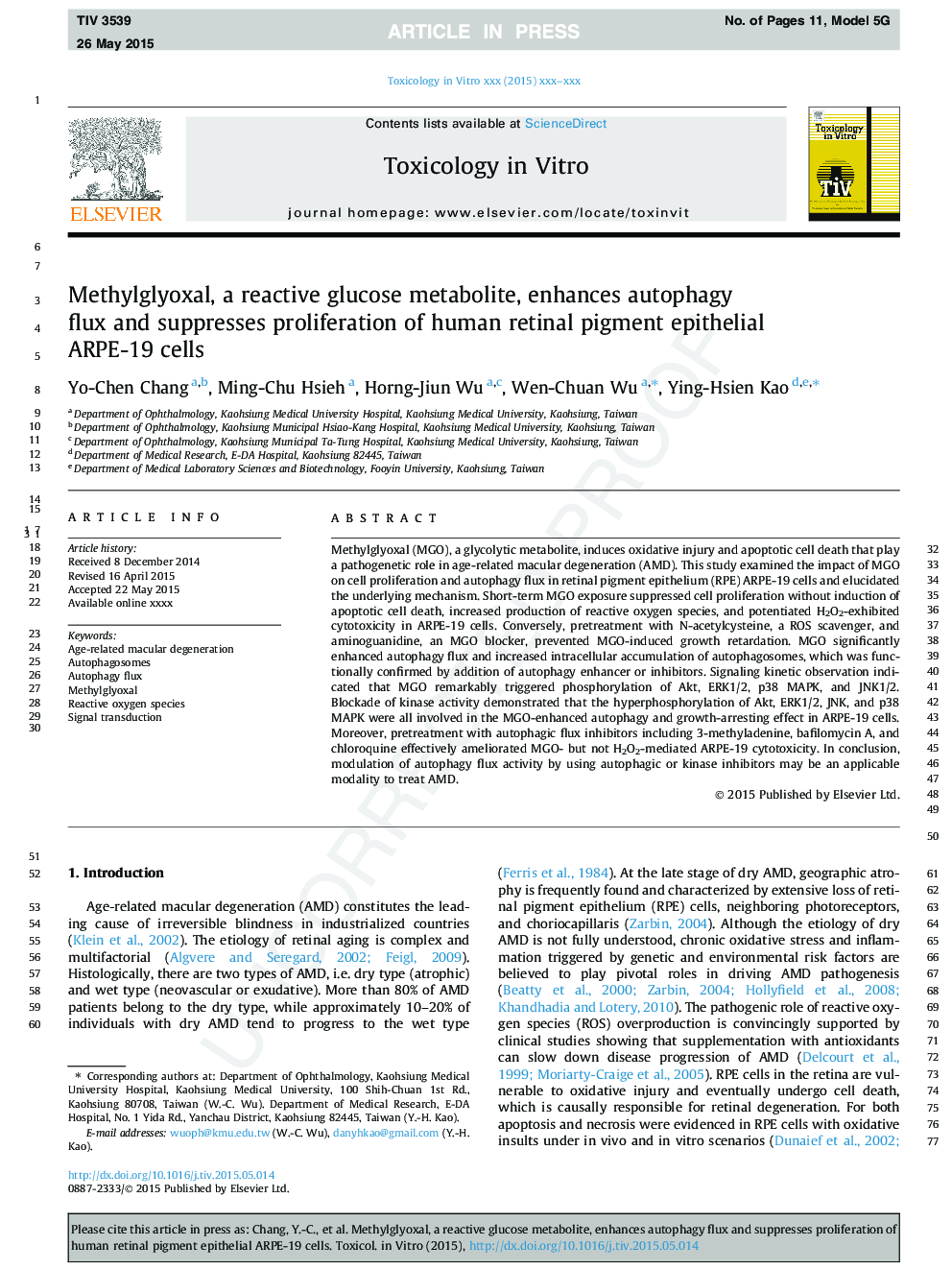| Article ID | Journal | Published Year | Pages | File Type |
|---|---|---|---|---|
| 5861363 | Toxicology in Vitro | 2015 | 11 Pages |
Abstract
Methylglyoxal (MGO), a glycolytic metabolite, induces oxidative injury and apoptotic cell death that play a pathogenetic role in age-related macular degeneration (AMD). This study examined the impact of MGO on cell proliferation and autophagy flux in retinal pigment epithelium (RPE) ARPE-19 cells and elucidated the underlying mechanism. Short-term MGO exposure suppressed cell proliferation without induction of apoptotic cell death, increased production of reactive oxygen species, and potentiated H2O2-exhibited cytotoxicity in ARPE-19 cells. Conversely, pretreatment with N-acetylcysteine, a ROS scavenger, and aminoguanidine, an MGO blocker, prevented MGO-induced growth retardation. MGO significantly enhanced autophagy flux and increased intracellular accumulation of autophagosomes, which was functionally confirmed by addition of autophagy enhancer or inhibitors. Signaling kinetic observation indicated that MGO remarkably triggered phosphorylation of Akt, ERK1/2, p38 MAPK, and JNK1/2. Blockade of kinase activity demonstrated that the hyperphosphorylation of Akt, ERK1/2, JNK, and p38 MAPK were all involved in the MGO-enhanced autophagy and growth-arresting effect in ARPE-19 cells. Moreover, pretreatment with autophagic flux inhibitors including 3-methyladenine, bafilomycin A, and chloroquine effectively ameliorated MGO- but not H2O2-mediated ARPE-19 cytotoxicity. In conclusion, modulation of autophagy flux activity by using autophagic or kinase inhibitors may be an applicable modality to treat AMD.
Keywords
Related Topics
Life Sciences
Environmental Science
Health, Toxicology and Mutagenesis
Authors
Yo-Chen Chang, Ming-Chu Hsieh, Horng-Jiun Wu, Wen-Chuan Wu, Ying-Hsien Kao,
